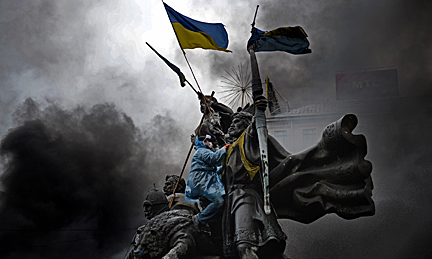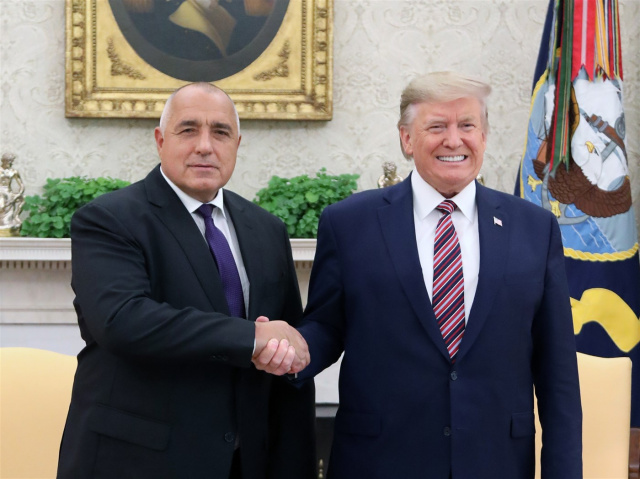Bulgaria in the Tension between NATO, Ukraine and Russia
Bulgaria‘s strategy in the crisis over Ukraine, adopted at today’s cabinet meeting, will be aimed entirely at the Bulgarian army, and our country will make every effort to resolve the conflict peacefully. This was announced by Prime Minister Kiril Petkov after the government session.
Some of the information during today’s sitting is secret and will not be announced, including to the deputies in the parliament, Kiril Petkov told the ministers. Later, it became clear from his words to the media that Bulgaria will focus all its efforts on resolving the Russia-Ukraine conflict through diplomatic channels. And our defense system will be aimed at developing the potential of the Bulgarian army.
Less than a day was the deadline given by Prime Minister Kiril Petkov to the Minister of Defense Stefan Yanev to prepare a draft of the national position of our country and measures to strengthen the security system in Bulgaria. The project was submitted and approved at today’s meeting.
The Council of Ministers decided to prioritize Bulgaria‘s strategy towards fully de-escalating tensions between NATO and the Russian Federation, as well as to use absolutely all opportunities through diplomatic channels to resolve this conflict. Our defense strategy will be based on the Bulgarian army. That means Bulgarian troops, Bulgarian command and Bulgarian military leadership, said Kiril Petkov, prime minister.
The Prime Minister expressed regret that over the years our army has been underfunded and stressed that we will work actively to cover precisely these deficits by avoiding the purchase of equipment that is not systematically selected. From now on, Bulgaria should not be just a consumer of security. It should be a constructive partner of NATO, said Kiril Petkov.
The Minister of Defense Stefan Yanev announced that together with the diplomatic efforts “Bulgaria must develop its defense potential in the direction of preparing a battalion battle group with Bulgarian troops and Bulgarian command”. On BNT he explained the details:
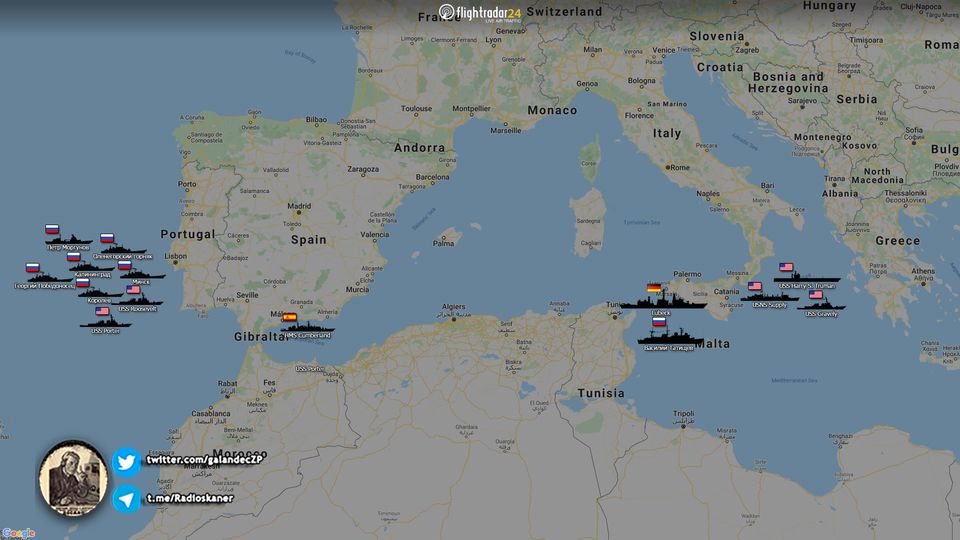 This will happen with a limited contingent, if we talk about what size – the order is not more than one battalion, not more than 1,000 people. A joint exercise is not a task, but a means, a joint exercise is a means to increase training and capacity. The battalion will take part in joint NATO exercises, which have been planned since last year, Yanev said. According to him, the decisions made today will be the Bulgarian position in the framework of the discussed measures in NATO.
This will happen with a limited contingent, if we talk about what size – the order is not more than one battalion, not more than 1,000 people. A joint exercise is not a task, but a means, a joint exercise is a means to increase training and capacity. The battalion will take part in joint NATO exercises, which have been planned since last year, Yanev said. According to him, the decisions made today will be the Bulgarian position in the framework of the discussed measures in NATO.
Neither the Prime Minister nor the Minister of Defense commented today on the information from the last days about the possible deployment of NATO ground troops and fighters in our country.
Source from Brussels: Bulgaria is Ready to Accept French Soldiers
And the Foreign Minister reminded that since December at all diplomatic forums our country has consistently insisted on the need to find a diplomatic solution to the conflict. These efforts will continue in the future. We hope that the conflict will be resolved diplomatically. However, diplomatic speech must be supported by the necessary evidence that we have the necessary defense capabilities, said Teodora Genchovska – Minister of Foreign Affairs.
The National Assembly heard out Kiril Petkov and ministers on Russia-NATO tensions at an extraordinary meeting today
The Prime Minister, the Ministers of Defense, the Ministers of Foreign Affairs, and the heads of the services in connection with the Russia-NATO tension and the Bulgarian position were heard in the parliament.
Bulgaria is not a consumer of security – this was stated by Prime Minister Kiril Petkov before the National Assembly. He added that in the current situation the Bulgarian army will be prioritized with a battalion, which will probably be formed in April-May. There is also a readiness to withdraw Bulgarian diplomats from Ukraine, but there is no such need at the moment.
The Minister of Defense highlighted the deficits in the Bulgarian army. The Foreign Minister pointed out that our country gives precedence to diplomacy.
MPs outlined dialogue as the best mechanism for resolving the crisis. They expressed concern about the state of the Bulgarian army and the possible economic consequences of escalating tensions.
The de-escalation of tensions is a top priority for Bulgaria, Prime Minister Kiril Petkov reaffirmed before parliament.
Bulgarian PM: Bulgaria is a Sovereign State. Russia should De-Escalate
“The escalation is real. We monitor all developments in this conflict on a daily basis. Our strategy for the first time has the idea of not being security consumers, but partners. Over the years, there are clear deficits in equipment in the Bulgarian army. We have different options – to prioritize the Bulgarian army, with Bulgarian troops, with Bulgarian command,” said Kiril Petkov.
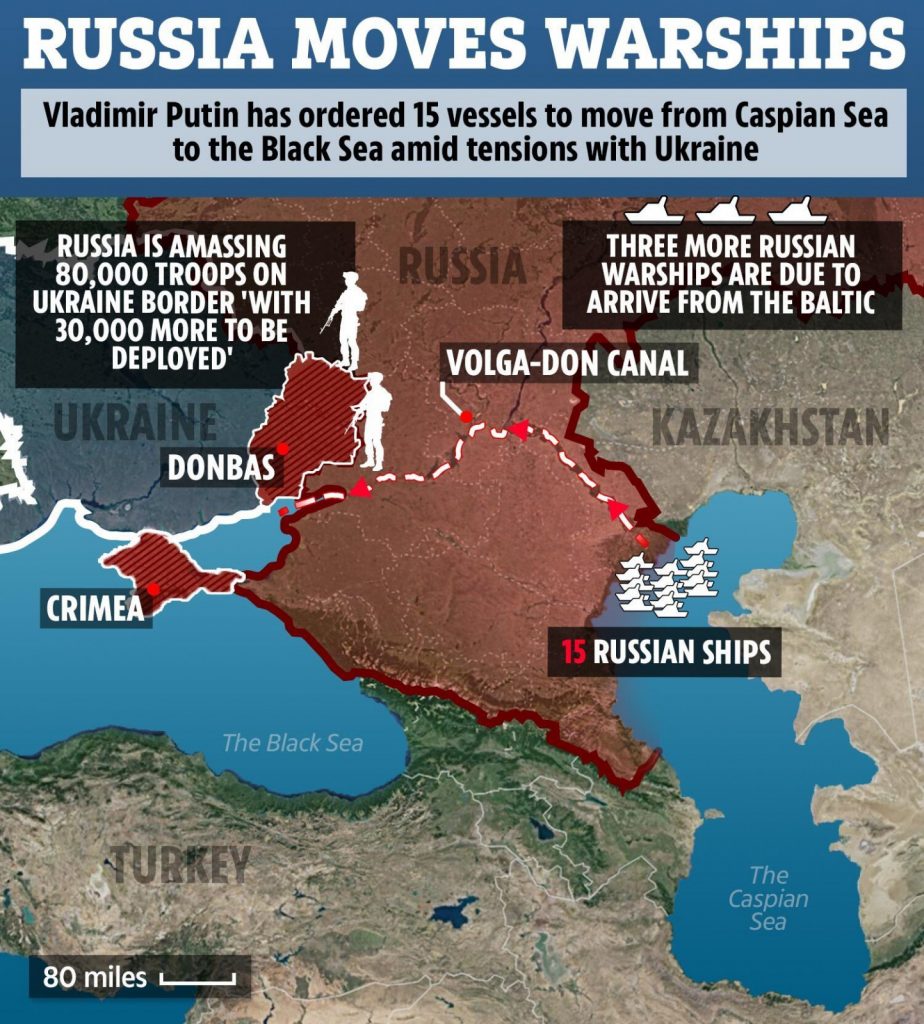
The Minister of Defense further developed the idea of prioritizing the Bulgarian army.
“A Bulgarian battalion will be made and everything will be done through national communication channels. This means that this battalion will increase the pace of preparation. We do not envisage escalation. We do not envisage plans to defend national territory. Nor do we envisage plans for another team to go elsewhere, to a different place”, said Stefan Yanev – Minister of Defense.
The Foreign Minister pointed out that our country gives precedence to diplomacy.
“Obviously, Russia is trying to divide allies by dividing them into categories,” said Teodora Genchovska, the foreign minister.
Opposition party GERB expressed concern that our country may behave as a security consumer.
“We will support you if you stop raising dust with phrases such as ‘national interest’. For us, the national interest is to be a strong member of NATO. GERB governments have done a lot for our defense capabilities – we paid for ‘Cougars’ and ‘Spartans’, you will order and pay the next F-16s. If you offer us a meaningful position – we are ready to support you,” said Daniel Mitov of GERB-SDS.
“The only thing to say whether we are a consumer is how we set our priorities. Our priority is the Bulgarian army with Bulgarian troops,” said Kiril Petkov.
The political party Democratic Bulgaria expressed concern over the state of the Bulgarian army.
“The mission of the Bulgarian army is constitutionally set, but we are all aware of the degree of readiness of obsolete equipment and delayed modernization,” said Hristo Ivanov.
The opposition party Movement for Rights and Freedoms outlined the best solution to the problems in this crisis.
“Through discussion, transparency, and everything that leads to military action. What would be the economic consequences?” Mustafa Karadayi said.
“The main risks are in the energy sector,” Kiril Petkov replied.
And the coalition party “There Is Such a People” focused on the possible economic consequences of escalating tensions.
“Is there a scenario for the energy sector?” Victoria Vasileva of TISP asked.
“We have a clear plan and we are in communication with the EU on how this can happen. Bulgarian households and businesses will be able to count on it,” said Kiril Petkov.
The Bulgarian left welcomed the ruling party’s decision to de-escalate tensions.
“The key for Bulgaria is to maintain its position in this hysterical situation. Bulgaria will not engage in hostile and military action,” Christian Vigenin from the Bulgarian Socialist Party said.
The nationalist Vazrazhdane (Revival) party asked the prime minister if he thought Russia posed a threat to Bulgaria‘s national security.
“There is an escalation of hysteria in Bulgaria. Russian troops are just doing standard exercises. This is being used in the domestic political debate. We are not just a consumer of security, we are using security as a maneuvering ground,” party leader Kostadin Kostadinov said.
Russia has launched Military Maneuvers near Ukraine and in Annexed Crimea
Bulgarian PM: Bulgaria’s Sovereignty is Above Everything
“We have no master. No one can say otherwise,” said Kiril Petkov.
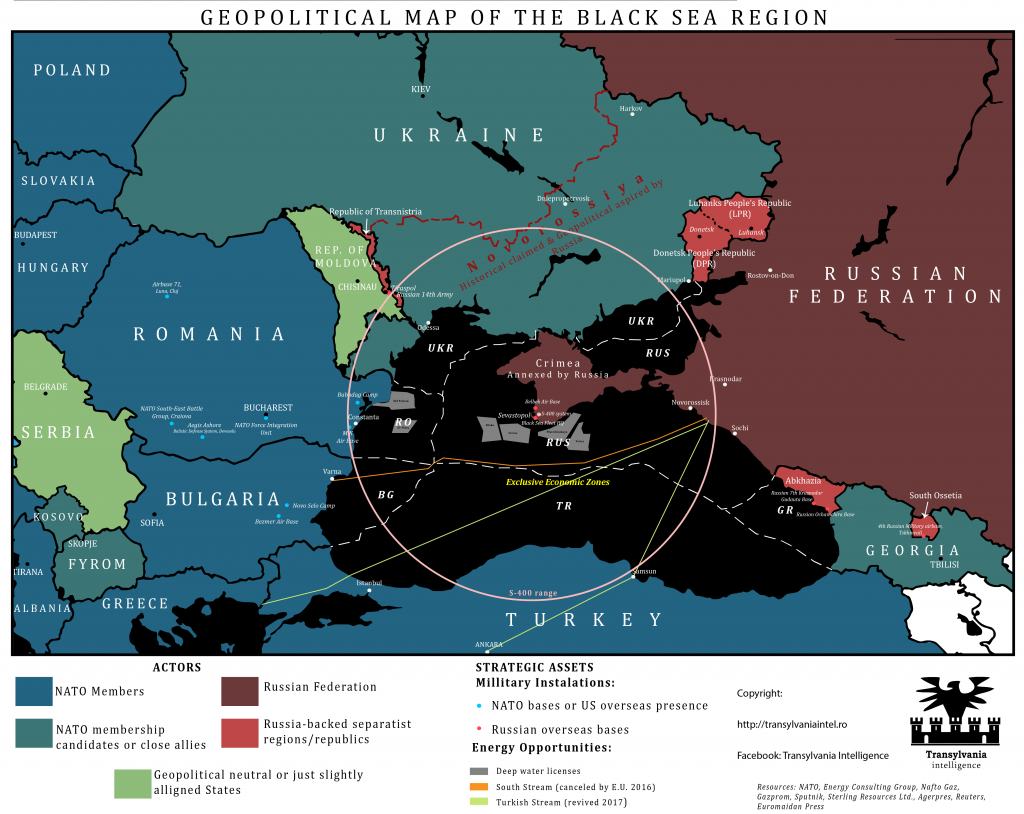
East Coast Bible College and Byrd Dorm
Exclusivism, Pluralism and Inclusiveness
Exclusivism as most relevant and easiest to detect in a church or a ministry. It seems that marginalized people tend to respond to a Divine authority that either empowers them to address the social evils of society, or to rise above the impoverishment and inequities of their existence through a sense of spiritual realities that supersede the material world. We are regarding this dynamic as clergies often create a separate “clericalism alternative” to genuine Biblical ministry. The laity sometimes separates itself from the church experience. And the congregation is left with the painful experience of continuous and cultural dislocation. There is, however, some steadiness and perseverance through such uncertainty in way of reinventing the church. This new church demands a new theology localized away from the academy to the missionary frontier. It also requires a better sense of community. Nonetheless, the renovation process within the community of believers is an intergenerational mission thus transmitting those forms of community discovered by the present church to the future one.
Pluralism brings the highest recommendation to every Christian who is seeking wholeheartedly the will of God for his/her life. If you want to practice theology in a pluralistic society at this time, however, the evangelical churches must be prepared and ready to resist these unacceptable media attacks that restrict religious freedom and impose pluralistic values to the Body of Christ. The discussion on the Kingdom of God implies partnership with non-Christians which in holiness circles may be viewed as inappropriate. Kingdom values are to replace worldly values to indicate the influence of the Kingdom. Certain guidelines of cooperation then must be drawn in order that any partnership of such kind does not radically change the identity of the church negatively, but rather serves as a positive transformational factor for all participating Christians and non-Christians.
Inclusiveness must note that the climax of Christ’s mission was the cross. His suffering was due to a preexisting conflict which was resolved though His sacrifice, a transformational statement that included justice and restoration. The Church is also called to engage in the struggle for justice and social equilibrium, which is not only its earthly mission, but part of its eschatological hope as well. The sign of social change is then, not so much, the coming city, but the cross outside the gates. The involvement of the individual believer and the church as a corporate body in suffering on behalf of the oppressed is not viewed by God as failure. On the contrary, it is a transformation that changes both the world and the church after the image of Christ. The all-inclusive (available to all who seek) Kingdom of God creates inclusiveness within God’s redemption for the creation. It is His redemptive participation in human history through which all people are challenged to repent and live a life of participating in Kingdom business, while the Kingdom remains an already-not-yet reality. This reality gives a new status to every believer, who is transformed after the image of Christ, in order to participate in His Kingdom. In this sense, the Kingdom is not a personal Kingdom or personal transformation alone, but it is community which God creates for all with the purpose of being inclusive toward all.
The Early Church lacked no diversity. When we turn to Scripture it appears that God Himself has chosen to challenge the homogeneous unit principle. For example, He chose to send Peter to the home of Cornelius (Acts 10). Who else could God have sent? He could have sent an angel. In fact, we are told that an angel appeared to Cornelius in a vision. But instead of preaching to Cornelius and giving the Good News, the angel told him to send his servants to Joppa and call on Simon Peter (Acts 10:1-6). Why did God send Cornelius to a Jew? I suspect it was as much for the spiritual growth of the Jewish Christian church, as it was for the salvation of these Gentiles. Further, we are told that in a vision Peter rejected God’s instructions to transcend culturally held beliefs and he argued with God. God did not placate Peter in his protest, but challenged him with these words, “Do not call anything impure that God has made clean” (Acts 10:15, NIV). God was investing a vision for racial/cultural diversity into Peter, and by extension, the church. This set the stage for the arrival of the Gentiles seeking Him. God had a plan for the inclusion of more people than just the Jews.
Trends and Issues Affecting Asian Missions and The Next American Spirituality
September 30, 2021 by Cup&Cross
Filed under Events, Featured, Missions, Publication
“Three Trends and Three Issues Affecting Asian Missions” and the figures given by David Barrett present a Macedonian Call to 3.7 billion people with some 9% Christians, which is no small issue in global missions today. At the same time, America becoming the third largest mission field in the world is the obvious antipode of missionary need in the Western hemisphere. The parallels in post-modernity are many.

About 20 years ago, a book called “The Next American Spirituality” summarized the culture of today’s American spirituality and its relation to the apostolic church. The main question is, “What would a theology of the church look like that took seriously the fact that North America is now itself a mission field?”
To answer the question, Gallup and Jones examined how America does Biblical spirituality, using the gathered data to analyze its shift and direction. According to their survey, the marks of the next American spirituality were going to be (in short):
- Bull-market church growth
- Self-centered religion of me and thee
- Hunger for experience – any experience
- Search of roots amid the relativism
- Quest for community resulting in self-belongingness and self-realization
In our current context of ministry two decades later, all of the above signs are evident and true. This is due on hand to the constant shift in the cultural paradigm, as well as the obvious shift in the identity and practices of the Christian church in the postmodern context. It almost seems like instead of being the model, the church is following a model, which not only changes the churches identity but interferes with its original evangelistic goal and global mission.
9/11 REVERSAL: Prophetic Restoration of a Nation and the Glory of God
In 1994, as a prophetic warning to the nation some seven years before the 9/11 attacks, Dr. David Franklin wrote “A Call to Righteousness: Impending Judgment.” Drawing conclusions from Ezekiel’s chapter 12 desolation, destruction, dispersion, despair and prophetic hope in chapter 14, he warns that:
(1) When a nation persists in violence, the Sovereign Lord confronts and holds responsible
(2) When a nation forgets God, He allows for times of repentance
(3) If repentance is ignored, God will expose and execute judgment on an unfaithful nation.
The book continues with a call for international righteousness (p. 10) and a critique of the debt-free myth proclaiming a time of economic shift (p. 11-12). Remember, this warning was written two decades before anyone in America had mentioned foreclosure, crises or global economic crises. But my favorite chapter still is the interpretation of Ezekiel’s vision of the departure of the Glory of God (p. 20-21).
 I read this book back in 1999 and frankly had forgotten about it until 2011 when, at a young ministers training camp in the mountains of Bulgaria, we experienced what we consider the most genuine appearance of the Glory of God in our whole ministry. We wrote about it then and presented our observation at the 2012 Missions Conference at the Good Shepherd Church of God inPahokee,FL. The four points of our observation carry a tremendous prophetic resemblance to what Dr. David Franklin had proclaimed in his book 18 years ago:
I read this book back in 1999 and frankly had forgotten about it until 2011 when, at a young ministers training camp in the mountains of Bulgaria, we experienced what we consider the most genuine appearance of the Glory of God in our whole ministry. We wrote about it then and presented our observation at the 2012 Missions Conference at the Good Shepherd Church of God inPahokee,FL. The four points of our observation carry a tremendous prophetic resemblance to what Dr. David Franklin had proclaimed in his book 18 years ago:
(1) Every time God renews His covenant with His people, He shows His presence.
(2) We know that God is present in the covenant, because He shows His glory. It happened to Moses and his generation. And it also happened to Solomon several hundred years later.
(3) When a generation looses the vision of the Glory of God, God begins renewing His covenant again with a new generation.
(4) God is not satisfied with a people who know the signs and the blessings of the covenant. He rests not until He is revealed as the God of the covenant.
2021 Prayer Meetings and Testimonies
A second round of 2021 elections in Bulgaria is scheduled for July 11, 2021. With this unstable political situation, our churches and adherents in the country are rightfully feeling the time for fervent prayer is at hand. As many other ministries, we have been too holding virtual prayer meetings online. But with everything happening in Bulgaria right now, it was much needed to dispatch team members in various directions as a response to several urgent prayer requests.
Several Mondays in a row now this summer, following the regularly scheduled Sunday services, our people have been gathering to pray and anoint one for another, serve Communion in key locations around the region. With pandemic regulations threatening to tighten once again after the elections, this small window of open air ministry has proven quite beneficial. Several healings were reported from small villages on the rout after prayer for the sick and anointing was conducted. In another place, a meeting place became available with the assistance of local regional government. The committee members that made this happened then requested prayer for their families, businesses and the whole village.
It will be an overstatement to say, that both prayer and answers have been much needed after the last year of pandemic shutdown. We are excited with anticipation for the upcoming Anointed Prayer Communion meetings scheduled for July 4th with a break for the July 11th elections, and then again with special gathering on the 19th. We continue to pray and wait on the Lord for provision of a more central location well our several ministries can gather and operate again independent from the ongoing government regulations.
NEW Istanbul canal to link Black and Marmara Seas
To the west of Istanbul, between the Black Sea and the Marmara Sea, lie diverse landscapes of forest, farms, marshes and ancient settlements. Following a curving line from north to south would connect you through the Terkos Lake, Sazlıdere stream and reservoir and Küçükçekmece lagoon, important water sources for migratory birds – not to mention the city’s residents.
This line, however, is also the path of Kanal İstanbul, a $12.6bn(£9.7bn) mega-infrastructure plan described by President Recep Tayyip Erdoğan as his “crazy project” when he first mentioned the idea in 2011.
Kanal İstanbul, approved by the environment ministry last month, would be a 45km (28 mile) shipping canal joining the Black Sea to the Marmara, running parallel to the Bosphorus strait, which already cuts through the centre of Istanbul. The government says the canal is needed to reduce water traffic through the city.
Critics – who include the mayor of Istanbul – warn of a great environmental cost, including the potential ecological destruction of the Marmara Sea. There is a delicate ecological balance between the Black Sea and the Marmara Sea, currently connected by the Bosphorus strait.
Because the Black Sea is 50cm higher than the Marmara, both the level and salinity density would change if the two were connected by the canal. Not only that, the flow of cellular organisms into the Marmara would eat up extra oxygen.
Pentagon: US Should Deploy More Troops in Bulgaria as Tensions Rise between Ukraine and Russia
Former Secretary of Defense Mark Esper says the United States should deploy more troops along the Black Sea in Bulgaria and Romania to deter potential aggression from Russia as tensions between Moscow and Washington heat up.
Esper, now a fellow at the McCain Institute for International Leadership at Arizona State University, said “I think we need to continue to stand up to Russia and trying to deter their bad behavior.”
Washington should look to reassure European allies and boost the NATO alliance by deploying more forces in Poland, “into the Baltics, if it makes sense, and places like Romania and Bulgaria, if not on a permanent – on a rotational basis,” Esper said in an interview with Reuters on Tuesday.
President Joe Biden called on Russian President Vladimir Putin on Tuesday to reduce tensions stirred by a Russian military build-up on Ukraine’s border and proposed a summit of the estranged leaders to tackle a raft of disputes.
Russia seized Crimea from Ukraine in 2014 and fighting has increased in recent weeks in eastern Ukraine, where government forces have battled Russian-backed separatists in a seven-year conflict that Kyiv says has killed 14,000 people.
When he was running the Pentagon last year, Esper advocated a similar shift as former President Donald Trump announced his intention to cut the U.S. troop contingent in Germany by about a third, saying Berlin had been taking advantage of the United States while not meeting financial obligations to NATO.
The United States announced on Tuesday that it will ramp up its forces in Germany amid the latest tensions with Russia over Ukraine, abandoning Trump’s plan to withdraw around 12,000 of the 36,000 U.S. troops there.
BULGARIAN ELECTION: Bulgaria: Prime Minister and Cabinet Step Down
Government Elections in Bulgaria (2005-2021):
2005 Parliamentary Elections
2006 Presidential Elections
2007 Municipal Elections
2009 Parliamentary Elections
2009 European Parliament elections
2011 Presidential Elections
2011 Local Elections
2013 Early parliamentary elections
2014 Early Parliamentary Elections
2015 Municipal Elections
2016 Presidential election
2017 Parliamentary elections
2019 European Parliament election (23-26 May)
2019 Bulgarian local elections
2019 Municipal Elections
2021 Parliamentary elections
AS WE HAVE PREVIOUSLY PROPOSED, THIS PUTS BULGARIA BACK ON THE “RED LIGHT OF 30 YEARS OF COMMUNISM…” AS IN 2013, 2014, 2015, 2016, 2017, 2018, 2019 AND 2020…
According to Article 111(2) of the Constitution of the Republic of Bulgaria, Prime Minister Boyko Borisov submitted to the newly elected 45th National Assembly the resignation of the Council of Ministers he headed. Prime Minister Borisov’s letter tendering the resignation of the Cabinet was deposited today with the President of the National Assembly via the registries of the two institutions. In accordance with Art. 111, para. 3 of the Constitution, the government led by Prime Minister Borisov will continue to perform its functions until the election of a new Council of Ministers and will ensure continuity in government.
8 Facts about Giving and Tithing in 2021
Okay, so this is going to be a bit of a depressing church statistics. During the Great Depression, Americans gave 3.3% of their income to their church. Today, it’s only 2.5% of their income. Less give to church in 2020 than during the Great Depression
1. Small Portion Of Tithers
Despite growing your church’s membership, you might find tithing doesn’t automatically increase. In fact, only 10% to 25% of church members tithe regularly.
2. Online Tithing Boosts Tithing
What church doesn’t want to increase tithing? The same Nonprofit Source study as above shows that offering online tithing increases tithing by 32%. This means it’s well worth investing in online giving solutions.
3. Accept Cards To Increase Tithing
Many people don’t carry cash anymore, even to church. Allowing members to tithe via credit or debit card boosts tithing. In fact, Nonprofit Source found that 49% of all donations are made via a card.
4. Over A Third Don’t Tithe
It just seems to keep going downhill, doesn’t it? The Nonprofit Source study found that 37% of attendees don’t tithe at all. That means over a third of your members probably aren’t tithing. If they do, it’s only on rare or special occasions.
5. Some Tithers Give Far More
While the suggested tithing amount is 10% of a member’s income, those who do tithe help make up for those who don’t. The majority (77%) give anywhere from 11% to just over 20% of their income regularly.
6. Most Giving Happens Monday – Saturday
Sunday seems like it would be the biggest giving day, right? Tithe.ly found that while it’s the biggest single day, 67% of church donations happen throughout the rest of the week. This is to fit tithing into their budget better. Another surprising giving statistic is over 30% of donations come in between 9 PM and 6 AM. What does this mean for your church? Online giving is a must.
7. Mobile Giving Rules
When it comes to non-traditional tithing, mobile rules. Apps are the clear winner with 57% of people preferring a mobile option. Tithe.ly also found that web giving accounts for 24% of online donations, while text giving came in at 14%.
8. A Few Give A Lot
If you’re worried about the small percentage of tithers, don’t. In fact, Tithe.ly discovered that 15% of consistent tithers give 51% of total donations. This at least offers your church some consistency for your budget.







